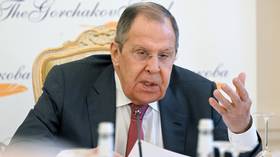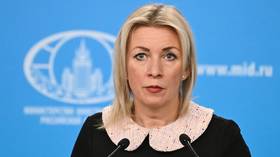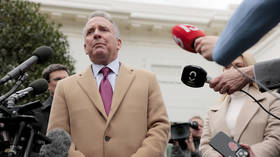EU leaders endorse contentious Brexit deal at emergency summit
European leaders have finally approved a deal on the UK’s departure from the EU during an emergency summit in Brussels. The agreement now has to be endorsed– or rejected – by British MPs.
"EU27 has endorsed the Withdrawal Agreement and Political Declaration on the future EU-UK relations," European Council President Donald Tusk said after less than an hour of the summit.
EU27 has endorsed the Withdrawal Agreement and Political Declaration on the future EU-UK relations.
— Donald Tusk (@eucopresident) November 25, 2018
The agreement - approved earlier by the UK government - consists of two key documents. The first, a 585-page withdrawal paper, will guide both sides all the way up to Britain’s departure from the bloc, which is set for March 29, 2019.
The legally binding text covers the UK’s hefty “divorce bill,” citizens’ rights, and a number of measures to ensure there is no hard border between Northern Ireland and EU member state Ireland. Starting from March 2019, Britain will enter a transition period set to last until December 2020.
The second, a non-binding document, is a political declaration that outlines aspirations for the future, including maintaining trade relationships, common foreign and defense policies, as well as close ties in law enforcement and criminal justice.
The much-anticipated approval of the Brexit deal did not come without setbacks. Spain threatened at the last minute to withdraw from the summit until it was given assurances over trade arrangements with Gibraltar – a British overseas territory with 30,000 residents. However, Madrid dropped the threat after receiving guarantees from the UK government.
In a press conference following the endorsement, European Commission President Jean-Claude Juncker, Tusk, and EU Brexit negotiator Michel Barnier stressed that the deal is absolutely the best one possible, and that the EU will remain friends with the United Kingdom.
"This is the best deal possible, this is the only deal possible," Juncker said. That remark was echoed by Barnier, who also noted that the EU has "worked constructively with the UK, never against the UK, and the UK worked constructively with us."
However, Juncker said the biggest part of the work in the "tragic moment" of divorce still lies ahead. "Payments have to be made but the future understanding is one that has to be constructed."
In her own press conference, British Prime Minister Theresa May also touted the deal as the best one available, while still coming across as trying to launch a last ditch attempt to safeguard the agreement. In doing so, the PM did not mince her words, stating that the UK can have a “bright future” with the deal or more time of “uncertainty” if it fails to pass through the British government.
Promising to make the case for the deal “with all my heart," May announced that British MPs will have their say on it before Christmas. That vote has been labelled by the UK PM as the “most significant” one that parliament has held in years.
UK PM May speaks after EU leaders approve #Brexit deal - WATCH LIVE: https://t.co/bxu9pxpCsOpic.twitter.com/61djEgS7mq
— RT UK (@RTUKnews) November 25, 2018
And May has all the reasons to worry about the very agreement as it had received more of a pushback from British politicians. Several parliamentarians resigned over the plan - from Brexit Secretary Dominic Raab to Work and Pensions Secretary Esther McVey. Former Foreign Secretary Boris Johnson also quit back in July, after previously referring to May's Brexit deal as "polishing a turd."
May met with EU officials earlier this week to secure their backing ahead of the summit. Back at home, she faces strong opposition to her Brexit deal, which she claims is the best available.
Yet, Labour, the Liberal Democrats, the SNP, and the DUP have all vowed to sink May’s deal, as have many Conservatives.
If they reject the agreement, the UK will have to leave the EU with no deal as the departure date cannot be altered. Other options proposed by MPs include holding another referendum or a snap general election if May becomes overwhelmed by motions of no-confidence.
Like this story? Share it with a friend!















